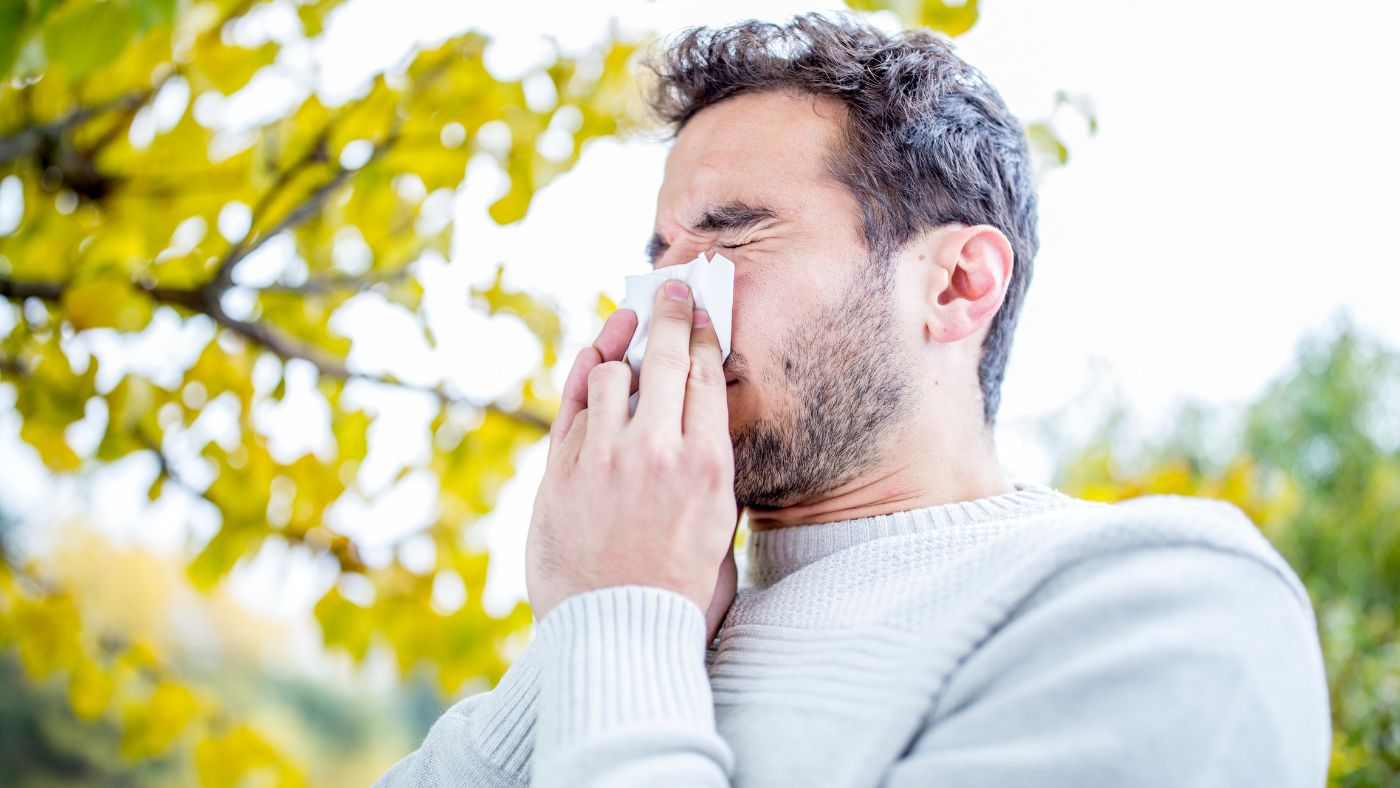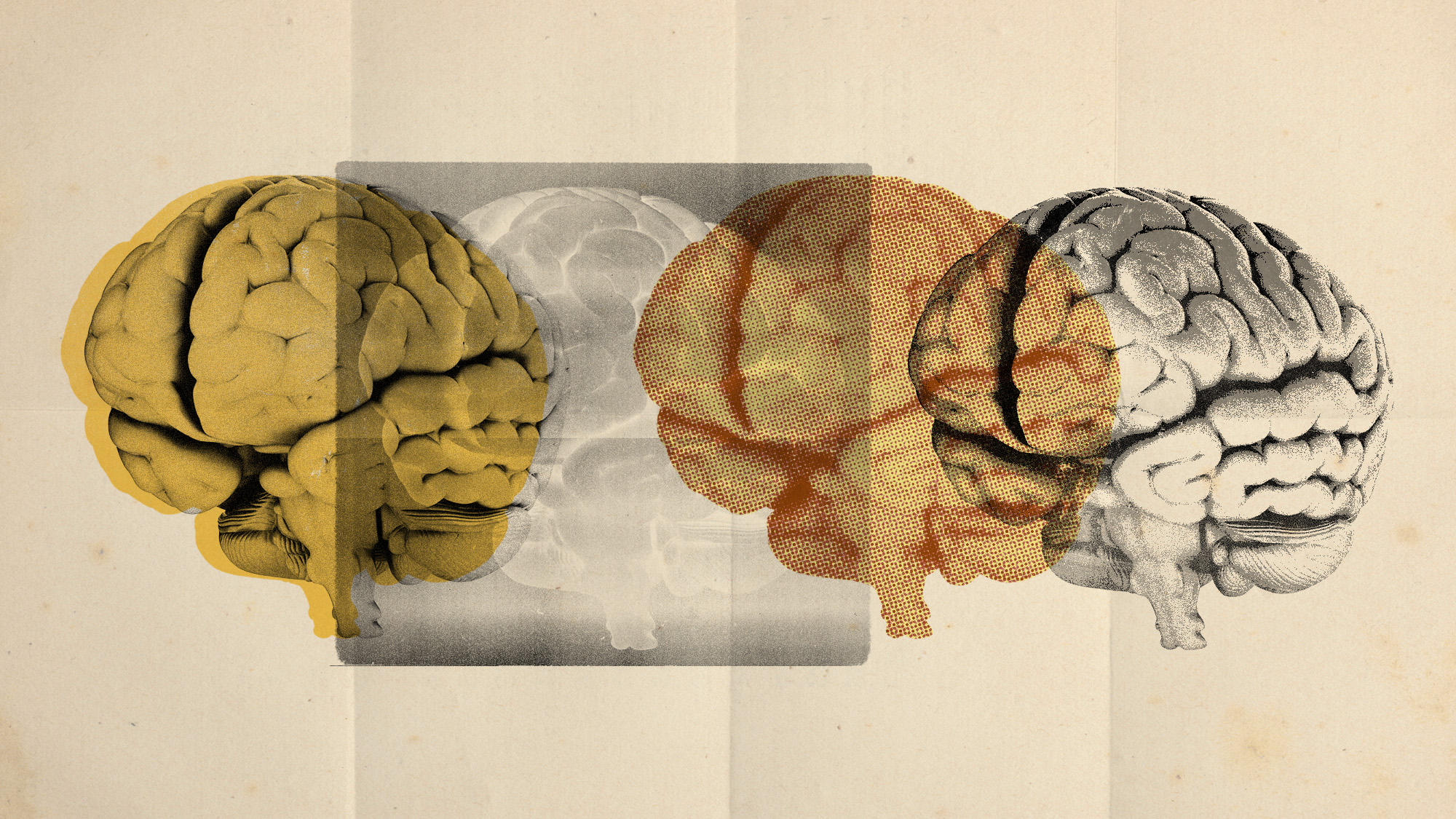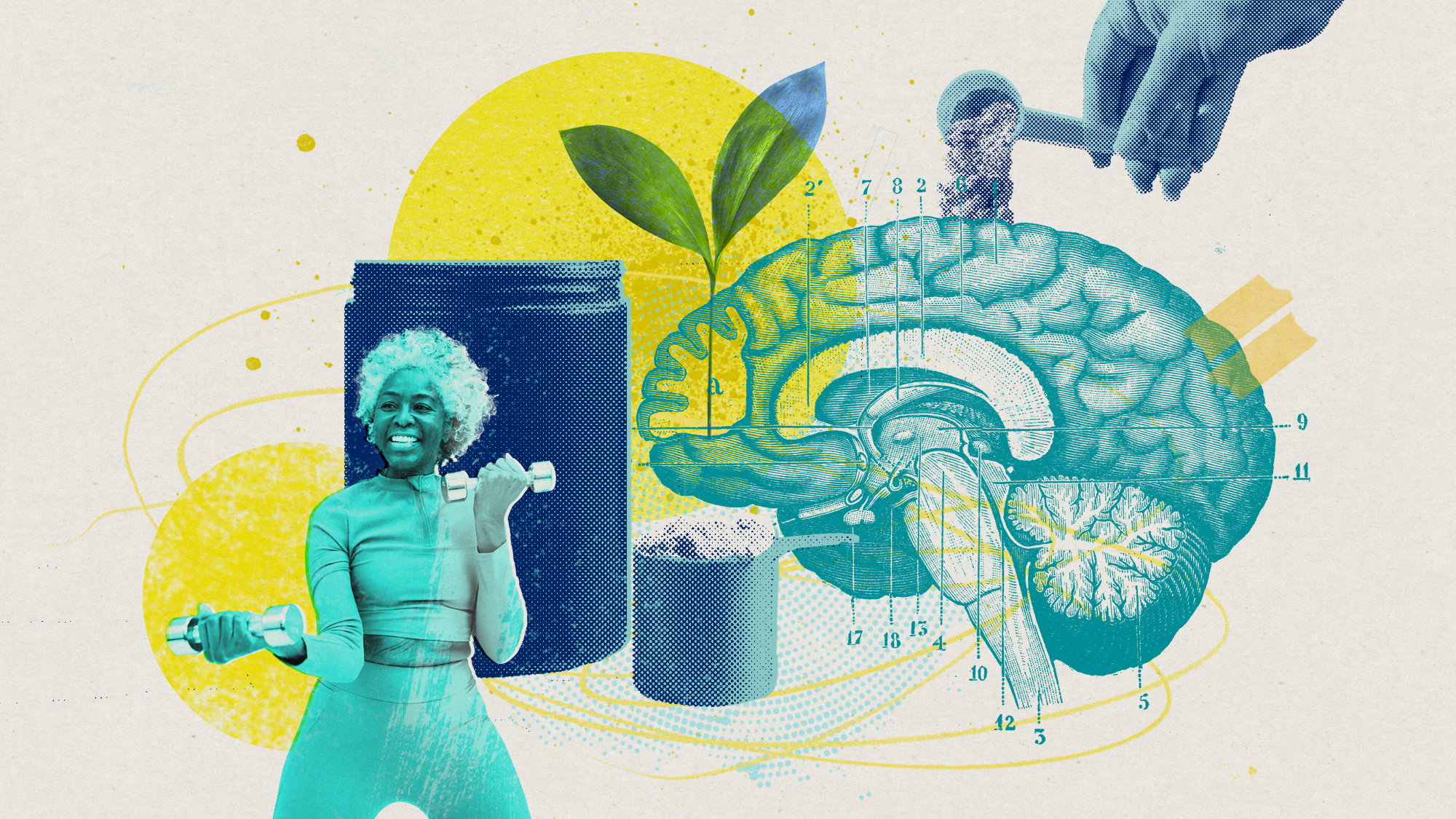Why is the hay fever season so bad in 2023?
The UK was hit with a ‘pollen bomb’ and hay fever season may continue to get worse thanks to climate change

A free daily email with the biggest news stories of the day – and the best features from TheWeek.com
You are now subscribed
Your newsletter sign-up was successful
Hay fever sufferers across the UK are sniffling and sneezing as warm weather sends pollen levels soaring. Visits to the hay fever page on the NHS website increased 252% between the beginning of May and the middle of June, according to NHS England. The busiest day was Sunday 11 June, when the webpage was seeing one visit every three seconds.
While hay fever season is an annual phenomenon, “it’s no surprise if you’ve had a flare-up recently”, said The Independent. The “prolonged cold weather and then the sudden explosion of warm weather” this spring has led to “very high counts of pollen”, Dr Milli Raizada, GP and senior clinical lecturer at Lancaster University, told Sky News.
In early June, the UK was hit with a “pollen bomb”, which is when plants “release millions of grains of pollen at the same time”, explained The Guardian.
The Week
Escape your echo chamber. Get the facts behind the news, plus analysis from multiple perspectives.

Sign up for The Week's Free Newsletters
From our morning news briefing to a weekly Good News Newsletter, get the best of The Week delivered directly to your inbox.
From our morning news briefing to a weekly Good News Newsletter, get the best of The Week delivered directly to your inbox.
What causes hay fever?
Hay fever, also known as seasonal allergic rhinitis, is a reaction to “fine, microscopic grains” – or pollen – released from grasses, weeds and trees, explained the BBC. Pollen contains the male reproductive cells of a plant. For plant reproduction to occur, the male cells must be transported, often by gusts of wind, to other plants where female cells await. “Pollen carried by the wind has to be tiny and lightweight and is therefore easily inhaled by humans and pets,” said the Met Office.
In some people, the pollen causes the body’s immune system to mount an attack, as if it were being invaded by harmful bacteria or virus. The body releases histamine into the bloodstream, causing a runny nose, sneezing and watering eyes.
What causes the pollen count to rise?
The pollen count is “the amount of pollen per cubic metre observed during the past 24 hours”, explained the Met Office. The count rises as certain kinds of plants begin to pollinate. In a typical year, trees do this between February and June, according to Allergy UK. This is followed by grass and weeds, which can release pollen from May through to September.
The severity of the pollen season is influenced by the weather. Generally, “the lower the temperature” in winter, “the less pollen is produced”, said the Met Office. A dry spring also reduces pollen production, but this can all vary “if soil and air temperatures in spring are higher than normal”.
A free daily email with the biggest news stories of the day – and the best features from TheWeek.com
Pollen levels tend to be highest in the morning and evening as the pollen is swept up into the atmosphere with the warming air, and then brought back down as the sun goes down and the weather cools. Though if the weather is very hot, “the pollen don't come down until the middle of the night, giving people a terrible night”, Beverley Adams-Groom, pollen expert and forecaster from the University of Worcester, told the BBC.
Who suffers from hay fever?
Approximately one in five people will feel the effects of hay fever in their lifetime, according to the NHS. It tends to run in the family and people are more likely to develop it if they already suffer from asthma, eczema or food allergies. Many rely on antihistamine drops, tablets or nasal sprays to relieve their symptoms.
For some, symptoms develop in childhood, but “but there’s a growing number who are belatedly suffering from it after getting away scot-free for decades”, said The Times.
The paper added: “A late onslaught of symptoms can be linked to adults being less exposed to seasonal allergens than they were as children, with their immune systems treating pollen as a toxic agent when it is encountered.”
Even pets can suffer from hay fever, although the signs are different from those seen in humans. A pollen allergy might cause your pet to lick or bite their paws, scratch their skin, shake their head or rub their ears. They might also have red skin around their eyes, ears and paws, and seem lethargic on days when the pollen count is high.
Has hay fever always been such a problem?
While hay fever has now reached epidemic proportions, it is in fact a fairly new phenomenon and was incredibly rare when it was first reported by John Bostoc, a London doctor, nearly 200 years ago.
The number of hay fever sufferers has trebled over the last 30 years, but experts are not certain why. This increase “has been blamed on modern lifestyles, including factors such as obsessive hygiene and excessive use of antibiotics”, said The Guardian.
Air pollution from traffic is a huge factor in the upsurge of hay fever because exhaust fumes “weaken pollen grains, making them split open more easily and spew out the allergic substances that trigger the condition”, the paper added. Some pollutants can also “make hay fever sufferers more sensitive to pollen allergen”.
Some experts believe climate change could “result in longer pollen seasons”, a Met Office spokesperson told The Guardian.
How can hay fever be stopped?
Long-term hay fever sufferers will be well aware that there is no cure, but over-the-counter antihistamines, nasal sprays and eye drops can provide some relief.
In an ideal world, the most effective way to control hay fever would be to avoid exposure to pollen. While acknowledging that it is not always possible, the NHS recommends keeping doors and windows closed, vacuuming regularly, avoiding grassy areas, wearing wrap-around sunglasses to keep pollen out of your eyes, showering after going outside and drying clothes indoors.
Using a cream or balm such as Vaseline inside your nostrils can also reduce the amount of pollen that gets into your nose. Experts recommend avoiding smoking as it can irritate the lining of the nose, eyes, throat and airways.
The Met Office also advises that alcohol worsens hay fever, “so as much as you may want a chilled beer, G&T or glass of rosé on a balmy evening, it might be best to stick to something soft – alcohol contains histamine which sets off allergy symptoms in the body”, says The Independent.
Maureen Jenkins, director of clinical services at Allergy UK, also urged people to seek medical advice to check whether they are using their medication correctly rather than just “soldiering on and prolonging their suffering”. For example, the NHS recommends that antihistamines are taken regularly, not just on the “odd days” when hay fever symptoms are at their worst.
Are there any home remedies for hay fever?
The role of food and nutrition in combating hay fever has been a point of contention for years.
Anecdotally, sufferers have claimed that local honey has helped to desensitise their allergic reaction, but any scientific proof of this is yet to emerge.
Garlic is said to be a good source of antihistamine, combating the chemicals behind hay fever symptoms. A diet rich in Omega-3, which is found in oily fish such as mackerel and sardines, is also associated with a decreased risk of hay fever, according to a 2005 study from the European Journal of Clinical Nutrition.
-
 6 of the world’s most accessible destinations
6 of the world’s most accessible destinationsThe Week Recommends Experience all of Berlin, Singapore and Sydney
-
 How the FCC’s ‘equal time’ rule works
How the FCC’s ‘equal time’ rule worksIn the Spotlight The law is at the heart of the Colbert-CBS conflict
-
 What is the endgame in the DHS shutdown?
What is the endgame in the DHS shutdown?Today’s Big Question Democrats want to rein in ICE’s immigration crackdown
-
 ‘Longevity fixation syndrome’: the allure of eternal youth
‘Longevity fixation syndrome’: the allure of eternal youthIn The Spotlight Obsession with beating biological clock identified as damaging new addiction
-
 RFK Jr. sets his sights on linking antidepressants to mass violence
RFK Jr. sets his sights on linking antidepressants to mass violenceThe Explainer The health secretary’s crusade to Make America Healthy Again has vital mental health medications on the agenda
-
 The app tackling porn addiction
The app tackling porn addictionUnder the Radar Blending behavioural science with cutting-edge technology, Quittr is part of a growing abstinence movement among men focused on self-improvement
-
 Scientists have identified 4 distinct autism subtypes
Scientists have identified 4 distinct autism subtypesUnder the radar They could lead to more accurate diagnosis and care
-
 'Poo pills' and the war on superbugs
'Poo pills' and the war on superbugsThe Explainer Antimicrobial resistance is causing millions of deaths. Could a faeces-filled pill change all that?
-
 'Wonder drug': the potential health benefits of creatine
'Wonder drug': the potential health benefits of creatineThe Explainer Popular fitness supplement shows promise in easing symptoms of everything from depression to menopause and could even help prevent Alzheimer's
-
 Fly like a breeze with these 5 tips to help cope with air travel anxiety
Fly like a breeze with these 5 tips to help cope with air travel anxietyThe Week Recommends You can soothe your nervousness about flying before boarding the plane
-
 RFK Jr.'s focus on autism draws the ire of researchers
RFK Jr.'s focus on autism draws the ire of researchersIn the Spotlight Many of Kennedy's assertions have been condemned by experts and advocates